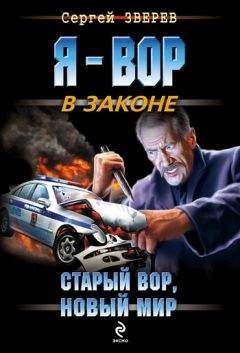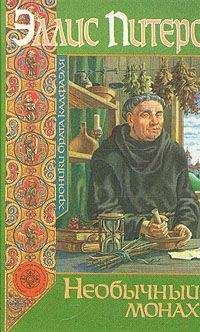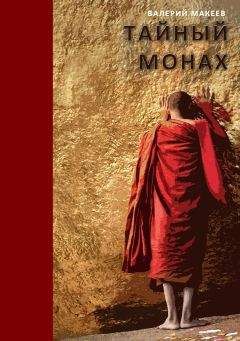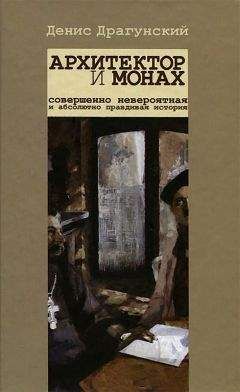Энтони Хоуп - Английский язык с Энтони Хоупом. Узник Зенды / Anthony Hope. The Prisoner Of Zenda
“Wear that ring, even though you wear another when you are queen (носи это кольцо, даже если будешь носить другое, когда станешь королевой),” I said.
“Whatever else I wear, this I will wear till I die and after (какое бы другое я ни носила, это я буду носить до самой смерти и после),” said she, as she kissed the ring (сказала она, поцеловав кольцо).
It was late when we rose from conference, and I betook me to the princess’s apartments. She was pensive that evening; yet, when I left her, she flung her arms about me and grew, for an instant, bashfully radiant as she slipped a ring on my finger. I was wearing the King’s ring; but I had also on my little finger a plain band of gold engraved with the motto of our family: “Nil Quae Feci.” This I took off and put on her, and signed to her to let me go. And she, understanding, stood away and watched me with dimmed eyes.
“Wear that ring, even though you wear another when you are queen,” I said.
“Whatever else I wear, this I will wear till I die and after,” said she, as she kissed the ring.
Chapter 17
Young Rupert’s Midnight Diversions
(Полночные забавы юного Руперта; diversion – отклонение /от курса, плана/; развлечение)
The night came fine and clear (наступила ночь, ясная и тихая; fine – хороший, отличный; ясный, сухой /о погоде/). I had prayed for dirty weather (я молился, чтобы погода была ненастной; dirty – грязный; ненастный), such as had favoured my previous voyage in the moat (такой, какая благоприятствовала мне в предыдущем путешествии через ров), but Fortune was this time against me (но судьба в этот раз оказалась против меня). Still I reckoned that by keeping close under the wall and in the shadow (тем не менее, я рассчитывал, что /если буду/ держаться близко к стенам и в тени) I could escape detection from the windows of the château (меня могут не заметить: «я мог бы избежать обнаружения» из окон замка) that looked out on the scene of my efforts (из которых просматривалось то место, /где я собирался/ действовать; to look – смотреть, глядеть; выходить на, быть обращенным на; effort – усилие). If they searched the moat, indeed, my scheme must fail (если они осмотрят ров, тогда, конечно, мой замысел не удастся: «должен потерпеть неудачу»; to search – искать; обыскивать, осматривать); but I did not think they would (но я не думал, что они станут /это делать/). They had made “Jacob’s Ladder” secure against attack (они надежно защитили «лестницу Иакова» от нападения). Johann had himself helped to fix it closely to the masonry on the under side (Иоганн сам помог установить ее близко к кирпичной кладке с нижней стороны; to fix – укреплять, закреплять, устанавливать /ср. фиксировать/), so that it could not now be moved from below any more than from above (так что ее нельзя было сдвинуть ни снизу, ни сверху). An assault with explosives or a long battering with picks alone could displace it (только взрывчатка или длительные удары кайлом могли сдвинуть ее; alone – в одиночестве, наедине; только, исключительно /усил./; to displace – перемещать; place – место), and the noise involved in either of these operations put them out of the question (но /из-за/ шума, /который/ вызвали бы оба эти действия, о них не могло быть и речи; to involve – вовлекать, втягивать; влечь за собой, вызывать; out of the question – не может быть и речи, совершенно исключено). What harm, then, could a man do in the moat (тогда какой вред мог бы причинить человек во рву)?
The night came fine and clear. I had prayed for dirty weather, such as had favoured my previous voyage in the moat, but Fortune was this time against me. Still I reckoned that by keeping close under the wall and in the shadow I could escape detection from the windows of the château that looked out on the scene of my efforts. If they searched the moat, indeed, my scheme must fail; but I did not think they would. They had made “Jacob’s Ladder” secure against attack. Johann had himself helped to fix it closely to the masonry on the under side, so that it could not now be moved from below any more than from above. An assault with explosives or a long battering with picks alone could displace it, and the noise involved in either of these operations put them out of the question. What harm, then, could a man do in the moat?
I trusted that Black Michael, putting this query to himself (я полагал, что Черный Михаэль, задав такой вопрос самому себе; to trust – доверять, верить; полагать, надеяться), would answer confidently, “None” (с уверенностью ответил бы: «никакого»); while, even if Johann meant treachery, he did not know my scheme (кроме того, даже если Иоганн и замыслил измену, он не был посвящен в мой замысел; while – пока, в то время как; в то же время, кроме того), and would doubtless expect to see me, at the head of my friends (и несомненно ожидал меня увидеть вместе с моими друзьями; at the head – во главе), before the front entrance to the château (перед парадным входом в замок). There, I said to Sapt, was the real danger (там, как я сказал Сэпту, была реальная опасность). “And there,” I added, “you shall be (и там, – добавил я, – нужно быть вам). Doesn’t that content you (разве вас это не устраивает; to content – удовлетворять, довольствоваться)?”
But it did not (но его это не устраивало). Dearly would he have liked to come with me (он охотнее предпочел бы отправиться со мной; dearly – нежно, горячо; to like – любить /что-л./; предпочитать), had I not utterly refused to take him (если бы я наотрез не отказался взять его). One man might escape notice, to double the party more than doubled the risk (одного человека могут и не заметить, а если мы пойдем вдвоем: «если удвоить группу», то риск увеличится больше, чем вдвое); and when he ventured to hint once again that my life was too valuable (а когда он попробовал снова намекнуть, что моя жизнь слишком ценна), I, knowing the secret thought he clung to, sternly bade him be silent (я, зная то, о чем он втайне подумывает, строго приказал ему помолчать; thought – мышление; мысли, мнение; to cling – прилипать, цепляться; держаться, придерживаться), assuring him that unless the King lived through the night (заверив его, что, если король не переживет эту ночь), I would not live through it either (мне тоже не пережить ее).
I trusted that Black Michael, putting this query to himself, would answer confidently, “None;” while, even if Johann meant treachery, he did not know my scheme, and would doubtless expect to see me, at the head of my friends, before the front entrance to the château. There, I said to Sapt, was the real danger. “And there,” I added, “you shall be. Doesn’t that content you?”
But it did not. Dearly would he have liked to come with me, had I not utterly refused to take him. One man might escape notice, to double the party more than doubled the risk; and when he ventured to hint once again that my life was too valuable, I, knowing the secret thought he clung to, sternly bade him be silent, assuring him that unless the King lived through the night, I would not live through it either.
At twelve o’clock, Sapt’s command left the château of Tarlenheim (в двенадцать часов = в полночь отряд Сэпта выехал из поместья Тарленхайм; command – команда, приказ; войска, находящиеся под чьим-л. командованием) and struck off to the right, riding by unfrequented roads (и направился вправо, выбирая безлюдные дороги; unfrequented – редко посещаемый; frequent – частый), and avoiding the town of Zenda (и окольным путем минуя городок Зенду; to avoid – избегать, сторониться). If all went well, they would be in front of the Castle by about a quarter to two (если все пойдет хорошо, они должны были оказаться перед замком примерно без четверти два). Leaving their horses half a mile off, they were to steal up to the entrance (оставив лошадей в полумиле /от него/, они должны были подобраться ко входу; to steal – воровать, красть; красться, прокрадываться /тж. to steal up/) and hold themselves in readiness for the opening of the door (и держать себя наготове = и быть готовыми к моменту, когда откроется дверь). If the door were not opened by two (если дверь не откроют до двух), they were to send Fritz von Tarlenheim round to the other side of the Castle (они пошлют Фрица фон Тарленхайма обойти замок с другой стороны; to round – округлять/ся/; огибать, обходить кругом; round – круглый). I would meet him there if I were alive (я встречу его, если буду жив), and we would consult whether to storm the Castle or not (и мы подумаем: «посоветуемся», брать замок штурмом или нет). If I were not there, they were to return with all speed to Tarlenheim (если меня там не будет, они должны вернуться как можно быстрее: «со всей скоростью» в Тарленхайм), rouse the Marshal, and march in force to Zenda (поднять маршала и с большим войском двинуться к замку Зенды; force – сила; вооруженный отряд). For if not there, I should be dead (потому что, если меня там не будет, значит я мертв); and I knew that the King would not be alive (и я понимал, что короля не будет в живых) five minutes after I ceased to breathe (/через/ пять минут после /того, как/ я перестану дышать).
At twelve o’clock, Sapt’s command left the château of Tarlenheim and struck off to the right, riding by unfrequented roads, and avoiding the town of Zenda. If all went well, they would be in front of the Castle by about a quarter to two. Leaving their horses half a mile off, they were to steal up to the entrance and hold themselves in readiness for the opening of the door. If the door were not opened by two, they were to send Fritz von Tarlenheim round to the other side of the Castle. I would meet him there if I were alive, and we would consult whether to storm the Castle or not. If I were not there, they were to return with all speed to Tarlenheim, rouse the Marshal, and march in force to Zenda. For if not there, I should be dead; and I knew that the King would not be alive five minutes after I ceased to breathe.
I must now leave Sapt and his friends, and relate how I myself proceeded on this eventful night (теперь я должен оставить Сэпта и его друзей и рассказать о том, как я сам действовал дальше в эту богатую событиями ночь; to proceed – продолжать /путь/; поступать, действовать; eventful – полный событий; event – событие). I went out on the good horse which had carried me, on the night of the coronation (я выехал на том добром коне, что вез меня в ночь коронации), back from the hunting-lodge to Strelsau (из охотничьего домика назад в Стрелсо). I carried a revolver in the saddle and my sword (при мне были револьвер в седельной /сумке/ и меч). I was covered with a large cloak (я был закутан в широкий плащ), and under this I wore a warm, tight-fitting woollen jersey (а под ним у меня был теплый, плотно облегающий шерстяной свитер), a pair of knickerbockers, thick stockings, and light canvas shoes (/на ногах/ – штаны для верховой езды, толстые носки и легкие парусиновые туфли; knickerbockers – бриджи, брюки с резинкой у колен). I had rubbed myself thoroughly with oil (я тщательно натер себя маслом), and I carried a large flask of whisky (и прихватил вместительную флягу с виски). The night was warm, but I might probably be immersed a long while (ночь была теплой, но я мог долго просидеть в воде; to immerse – погружать в жидкость, окунать), and it was necessary to take every precaution against cold (и было необходимо принять все меры предосторожности, чтобы не замерзнуть: «против холода»): for cold not only saps a man’s courage if he has to die (поскольку холод не только отбирает смелость у человека, если ему суждено умереть; to sap – производить подкоп, подрывать; истощать, ослаблять), but impairs his energy if others have to die (но и ослабляет его: «уменьшает его силы», если суждено умереть другим; energy – энергия; силы), and, finally, gives him rheumatics, if it be God’s will that he lives (и, наконец, награждает его ревматизмом, если, по воле Божией, он выживет). Also I tied round my body a length of thin but stout cord (также я обвязал вокруг пояса: «вокруг своего тела» моток тонкого, но прочного шнура; length – длина; кусок, отрез), and I did not forget my ladder (и не забыл о своей лестнице). I, starting after Sapt, took a shorter route, skirting the town to the left (я, выехав после Сэпта, выбрал более короткий маршрут, обогнув город по левой стороне; to start – начинать/ся/; отправляться, пускаться в путь), and found myself in the outskirts of the forest at about half past twelve (и оказался на опушке леса в половине первого).




